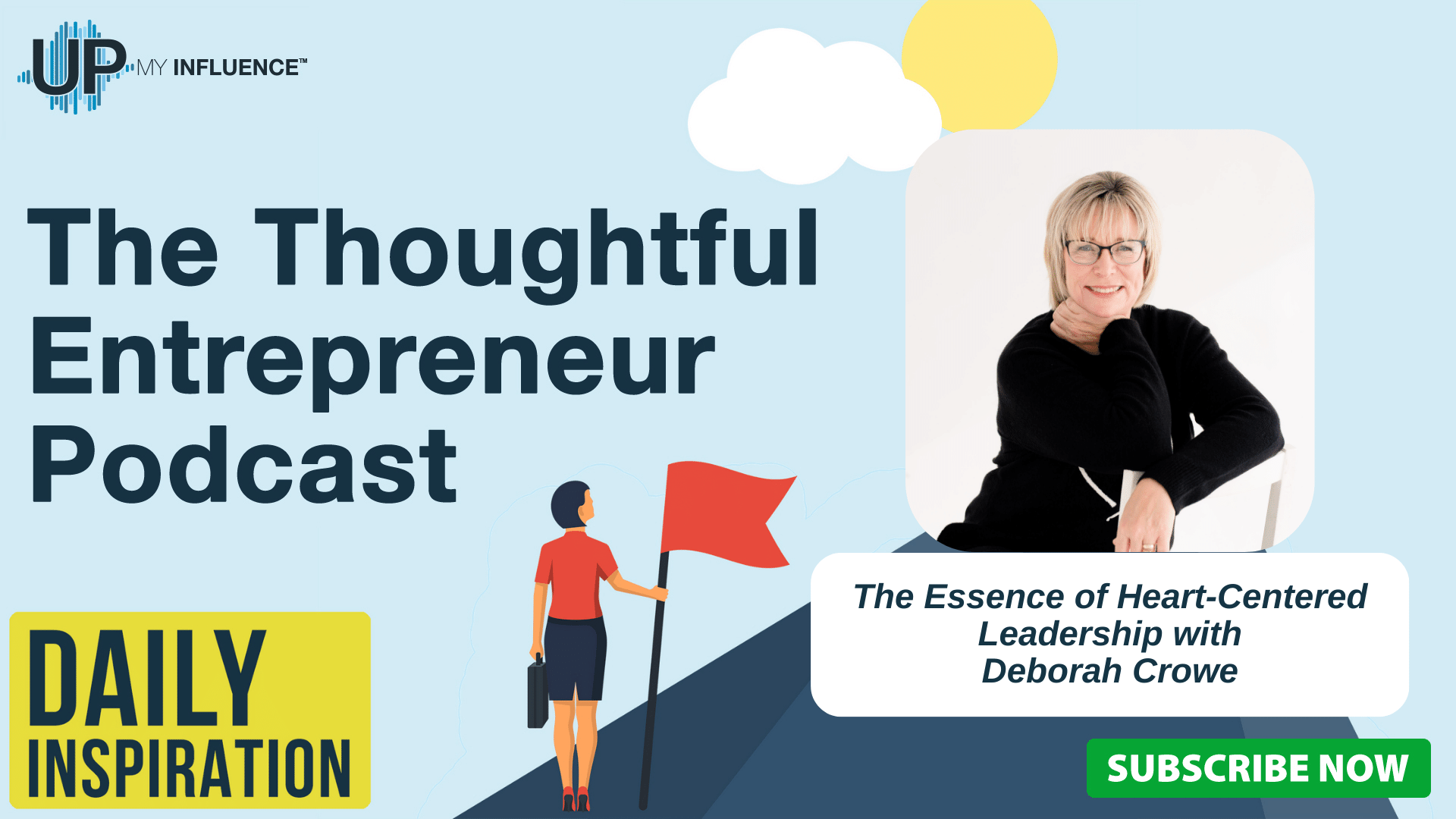THE THOUGHTFUL ENTREPRENEUR PODCAST
In this episode of the Thoughtful Entrepreneur, your host Josh Elledge speaks to the Certified Life & Leadership Coach, Deb Crowe.

Deb defines heart-centered leadership as honoring your connection with people. She firmly believes that everyone has the potential to be a leader, regardless of their title or status.
Deb explained that thriving leaders possess high self-awareness and model heart-centered leadership. She emphasized the importance of looking after your people and fostering a healthy organizational culture.
Deb talked about her insights on the state of leading people and what people want today. She underscored the importance of checking in with introverts on the team and creating a safe space for open communication.
According to Deb, leadership belongs to all of us in our personal lives and business. She emphasizes the importance of integrating heart-centered leadership into business acumen, something she believes has been missing for a long time.
She emphasizes that she coaches the whole person and focuses on creating goals and achieving them without creating codependency.
Key Points from the Episode:
- Importance of kindness and connection in leadership
- State of leading people in today's world
- Challenges and considerations of remote work and employee engagement
- The definition of heart-centered leadership as honoring connection with people
- Thriving as a leader and imbuing heart-centered qualities
- Evolution of corporate wellness and looking after the whole person
- Importance of checking in with introverts and creating a safe space for communication
- Every leader should read Deb's book on heart-centered leadership
- Transformation leaders can expect from reading the book
- Deb's work as a life and leadership coach for executives at all levels
About Deborah Crowe:
Deborah Crowe, author of “The Heart-Centered Leadership Playbook,” is a visionary leader reshaping the traditional leadership landscape.
Deborah's transformative guide offers practical tools and strategies to inspire purposeful and passionate leadership at both individual and organizational levels.
Praised by Claude Silver, Chief Heart Officer at VaynerMedia, and Dr. Chris Stout, bestselling author and clinical psychologist, Deborah's playbook combines personal anecdotes, research-backed insights, and practical strategies.
It illuminates a path toward authentic leadership, challenging conventional norms with valuable tools and self-reflections that nurture genuine self-awareness.
Deborah's book delves into the significance of embracing vulnerability, active listening, and fostering meaningful connections to unlock the true potential of leaders and their teams.
Drawing on extensive research, real-world examples, and personal experiences, she provides a comprehensive roadmap for cultivating self-awareness, emotional intelligence, and ethical decision-making.
“The Heart-Centered Leadership Playbook” is a must-read for aspiring leaders, seasoned executives, and anyone seeking positive change in their personal and professional lives. Deborah's work reflects a commitment to redefining leadership through heart-centered principles, making her a trailblazer in transformative leadership.
Tweetable Moments:
02:53 – “They know who they are because they have an immeasurable level of self-awareness. Who wouldn't want to work for somebody like that? A heart-centered leader at the helm of any organization is fostering the creation of a healthy, vital culture.”
16:43 – ” I think during COVID, we got to see how we all became zombies on computers and our phones, and we were kind of stuck at home, and it was important to get up.”
Apply to be a Guest on The Thoughtful Entrepreneur:
https://go.upmyinfluence.com/podcast-guest
Links Mentioned in this Episode:
Want to learn more? Check out Deborah Crowe’s website at
Check out Deborah Crowe on LinkedIn at
https://www.linkedin.com/in/debcrowe/
Check out Deborah Crowe on Facebook at
https://www.facebook.com/deb.crowe/
Check out Deborah Crowe on Instagram at
https://www.instagram.com/heartcenteredleader/?hl=en
Check out Deborah Crowe on Twitter at
https://twitter.com/Over40Wisdom
More from UpMyInfluence:
We are actively booking guests for our The Thoughtful Entrepreneur. Schedule HERE.
Are you a 6-figure consultant? I’ve got high-level intros for you. Learn more here.
What is your #1 Lead Generation BLOCKER? Take my free quiz here.
Want to learn more about all the podcasts managed by UpMyInfluence? Opt in here.

